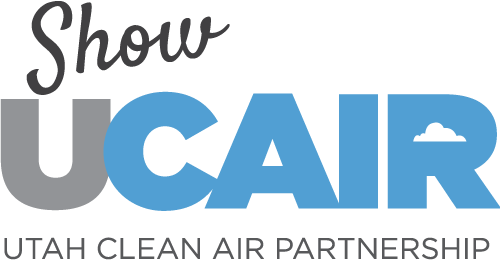In September we were joined by over forty UCAIR partners in-person at the Department of Environmental Quality. We first heard from Kerry Kelly, a professional engineer and an Associate Professor of Chemical Engineering at the University of Utah about Community-Engaged Measurements to Understand Spatial Differences in Air Pollution. Then, we had a great roundtable conversation with our partners. Please see a few of the topics we covered below:
We have seen few significant impacts to our air quality in the past few years, both for good and bad. Here are a few new challenges the partners acknowledged need to be addressed: Great Salt Lake, population growth, summertime ozone pollution, climate change, wildfires, public health, area sources.
We also reviewed a few of the most critical investments that need to be made as Utah prepares for about long-term planning improving air quality. Discussions surrounded increasing air quality monitoring, improving energy-efficiency of new buildings and houses, increasing infrastructure to support medium-duty and heavy-duty trucking with electric and hydrogen. Additionally, planning efforts to encourage seamless public transit to congestion centers such as downtown, resorts areas and busy corridors.
Here are a few ways that UCAIR partners are making a difference:
- Provo Mayor’s Sustainability Committee and Provo Sustainability and Natural Resources Committee is working with Utah Clean Energy on energy efficiency of new construction and coordinating on that with Provo Mayor’s office, Provo’s Economic Development, and City Council members.
- Wasatch Front Regional Council is working on vehicle emission reductions and long-term planning for transportation options.
- Lehi City’s council adopted a No-Idling ordinance for all city owned vehicles.
- Utah Clean Cities is working closely with private and public sector, government, social, and altruistic leaders to apply pioneering partnerships and technologies to address social challenges and build sustainable communities.
- Utah Clean Energy is educating community members about air quality issues and supporting policy change. UCE also seeks to support the state and local governments to implement new programs that are slated to be funded by the Inflation Reduction Act.
- The Davis County Health Department’s emissions program exists to ensure vehicles are not exceeding emissions standards. Additionally, the health department has been working to improve access to local air quality conditions by installing purple air sensors on Davis County schools.
- Summit County has been focusing on education, procuring renewable energy resources for the community, installing EV charging stations and supplying free electricity, and transitioning our fleet to electric when possible.
- Utah Transit Authority’s focus is placing more of an emphasis on sustainability throughout the organization and encouraging public transit as an alternative to single occupancy vehicle trips.
- O2 Utah is working to elect air quality champions as well as developing air quality legislation, including Prosperity 2030 which has the goal and plan to reduce emissions by 50%.
- Western Resource Advocates works closely with state regulators and utilities to decarbonize the electricity sector. WRA also is working with state agencies, local governments, and decision makers on transportation electrification initiatives. Additionally, they are working with the state on air quality compliance and planning as required by the Clean Air Act.
- Utah’s Office of Energy Development recently updated the Energy & Innovation plan, and believe it is time to reevaluate the voluntary renewable portfolio standard. OED is also collaborating with several non-profit and non-governmental organizations that are focused on improving Utah’s air quality and environment.
- SLCGreen, Salt Lake City Sustainability, is helping to expand the use of renewable energy in the community and throughout the state, SLCGreen incentivizes building electrification and is working to advance the adoption of electrified transportation.

